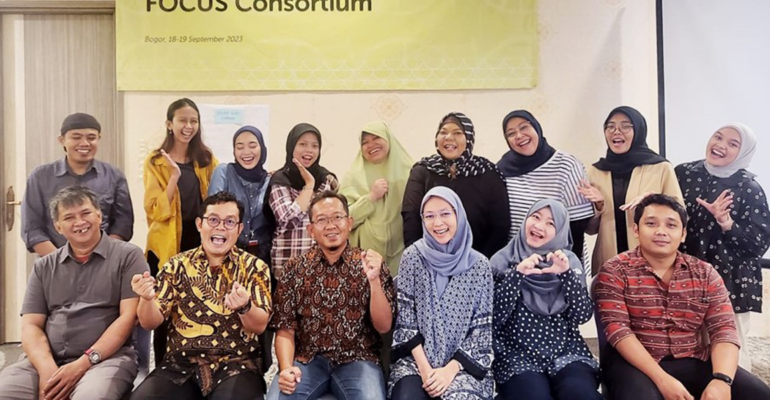PKSPL Researchers Join Gender Equality and Social Inclusion Training with FOCUS Consortium

A total of four researchers from the Centre for Coastal and Marine Resources Studies (PKSPL) IPB University attended the Gender Equality and Social Inclusion Training (GESI), 18-19/9. This training is part of the enrichment in the implementation of the Fisherfolks Empowerment for Climate Resilience and Sustainability (FOCUS) programme supported by Norad on the north coast of Central Java.
The GESI training held in Bogor was facilitated by the HIvos Foundation as the coordinator of the FOCUS programme. The training also presented implementers from other FOCUS consortiums, namely PKSPL IPB University, the Indonesian Forum for the Environment (WALHI) and the People’s Coalition for Fisheries Justice (KIARA).
During the GESI training, participants were invited to dissect the root causes of gender-based inequality and injustice in various contexts such as agrarian conflict, intolerance, bullying, and disaster. In addition, participants were also invited to understand what and how to do safeguarding or efforts to prevent gender-based injustice and protect vulnerable groups.
This training also invites participants to use an intersectionality approach to understand how a subject’s perception of a phenomenon will depend on the personal uniqueness or background knowledge of the subject which is intertwined with institutional problems and the socio-political structure around him. Therefore, the issue of gender inequality and social exclusion is not just an individual problem or just a behavioural issue but the result of complex structural institutional intertwining. However, because these structures are intertwined and long-standing, it still takes hard work to bring new perspectives or to dismantle these unjust structures.
“The GESI training increased my awareness and skills in interpreting women and community issues in the context of research. I learnt the importance of transforming the principles of GESI and safeguarding in every stage of research to produce quality research that is relevant and has a positive impact on society,” said Retia Revany, one of the PKSPL IPB University researchers who participated in this training.
In the context of the FOCUS programme, where the beneficiaries are coastal communities, PKSPL IPB University sees that so far there is still a wrong perception that the fisheries sector is the domain of men. In fact, there are many facts that women also take on roles as fish catchers, net makers, fish processors and executors in the fish trade. This means that the work dimension of fishermen is very broad, which does not differentiate between genders.
The term fishermen should not be translated with the word “fisherman” but with the more inclusive term “fishers” or “fisherfolks”. Therefore, the existence of fisherwomen must be recognised legally and in the civil registry as it relates to their inherent rights as a profession. The invisibility of women in fisheries means that women are never counted as fishermen and therefore do not have the opportunity to obtain rights and protection in accordance with Indonesian law.
“In the initial step to identify the problem of inequality in the coastal management sector of Central Java, PKSPL IPB University is currently compiling a coastal and resource profile by adding this GESI perspective to ensure whether policies, regulations and operational mechanisms that have been in place on the north coast of Central Java are inclusive and responsive to this gender issue,” said Yoppie Christian, one of the researchers from PKSPL IPB University.
After this training, participants hope that the implementation of the FOCUS program in the future can be more responsive and able to capture issues related to the marginalisation of women or other groups. In a previous field study conducted by PKSPL IPB University, there were indications that climate change was felt more heavily by women and young fishermen. The training participants also hoped that the outputs produced by the programme can build alternative constructions as a counter-narrative to the false narratives that have been in the public regarding women fishermen. (yop) (IAAS/RUM)



